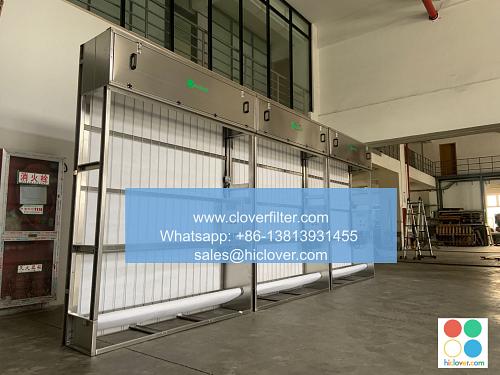Sustainable Living: The Green Impact of Air Filter Terms and Conditions

As the world grapples with the challenges of climate change, environmental degradation, and air pollution, the importance of sustainable living has become more pressing than ever. One often overlooked aspect of sustainable living is the impact of air filter terms and conditions on our environment. In this article, we will explore the green impact of air filter terms and conditions, and highlight various application areas where sustainable air filtration practices can make a significant difference.
Introduction to Sustainable Air Filtration
Sustainable air filtration refers to the use of air filters that are designed to minimize their environmental footprint, while maintaining optimal indoor air quality. This can be achieved through the use of eco-friendly materials, energy-efficient designs, and responsible end-of-life disposal practices. By adopting sustainable air filtration practices, individuals and organizations can reduce their carbon footprint, minimize waste, and promote a healthier environment.
Key Terms and Conditions for Sustainable Air Filters
When selecting air filters, it’s essential to consider the following key terms and conditions:
* HEPA filtration: High Efficiency Particulate Air (HEPA) filters are designed to capture 99.97% of particles as small as 0.3 microns, making them an effective solution for improving indoor air quality.
* MERV rating: The Minimum Efficiency Reporting Value (MERV) rating measures the filter’s ability to capture particles of different sizes. A higher MERV rating indicates a more efficient filter.
* Energy efficiency: Look for air filters with low energy consumption and high airflow rates to minimize their environmental impact.
* Sustainable materials: Opt for air filters made from eco-friendly materials, such as recycled polyester or natural fibers, to reduce waste and minimize environmental harm.
Application Areas for Sustainable Air Filtration
Sustainable air filtration practices can be applied in various settings, including:
* Residential buildings: Installing sustainable air filters in homes can improve indoor air quality, reduce energy consumption, and promote a healthier living environment.
* Commercial buildings: Sustainable air filtration systems can be integrated into commercial buildings to improve indoor air quality, reduce energy costs, and enhance occupant productivity.
* Industrial settings: Sustainable air filtration practices can be applied in industrial settings to reduce airborne contaminants, improve worker health, and minimize environmental pollution.
* Transportation systems: Sustainable air filtration systems can be used in vehicles, trains, and airplanes to improve indoor air quality, reduce energy consumption, and promote a healthier travel environment.
Benefits of Sustainable Air Filtration
The benefits of sustainable air filtration are numerous, including:
* Improved indoor air quality: Sustainable air filters can capture pollutants, allergens, and other airborne contaminants, promoting a healthier indoor environment.
* Reduced energy consumption: Energy-efficient air filters can minimize energy costs, reduce greenhouse gas emissions, and promote a more sustainable future.
* Minimized waste: Sustainable air filters can be designed with recyclable materials, reducing waste and minimizing environmental harm.
* Enhanced occupant productivity: Improved indoor air quality can boost occupant productivity, concentration, and overall well-being.
Conclusion
In conclusion, the green impact of air filter terms and conditions is a critical aspect of sustainable living. By adopting sustainable air filtration practices, individuals and organizations can reduce their environmental footprint, promote a healthier environment, and improve indoor air quality. As we move forward in our pursuit of a more sustainable future, it’s essential to consider the key terms and conditions for sustainable air filters, and apply them in various settings, including residential, commercial, industrial, and transportation systems. By working together, we can create a healthier, more sustainable environment for generations to come. Prompt

